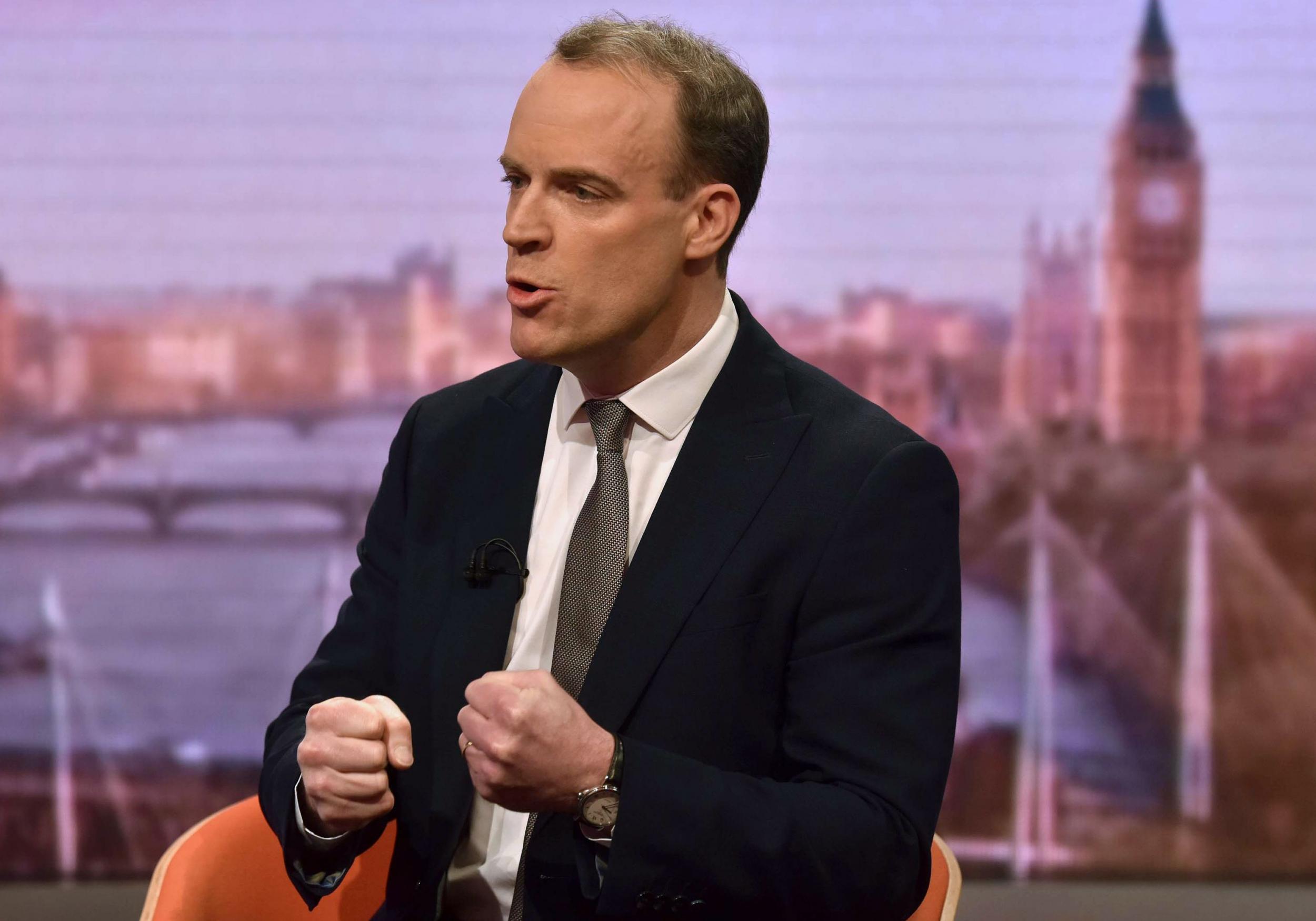Brexit: UK will resist ‘EU rules on social and environmental protections’ in trade talks, Boris Johnson says
PM to deliver major speech setting out UK’s prior ties in trade talks with Brussels
Your support helps us to tell the story
From reproductive rights to climate change to Big Tech, The Independent is on the ground when the story is developing. Whether it's investigating the financials of Elon Musk's pro-Trump PAC or producing our latest documentary, 'The A Word', which shines a light on the American women fighting for reproductive rights, we know how important it is to parse out the facts from the messaging.
At such a critical moment in US history, we need reporters on the ground. Your donation allows us to keep sending journalists to speak to both sides of the story.
The Independent is trusted by Americans across the entire political spectrum. And unlike many other quality news outlets, we choose not to lock Americans out of our reporting and analysis with paywalls. We believe quality journalism should be available to everyone, paid for by those who can afford it.
Your support makes all the difference.Britain will resist accepting any EU rules on social protections and the environment in the post-Brexit trade talks with the bloc, Boris Johnson will say on Monday.
Three days after the UK ended its 47-year membership of the EU, the prime minister will use his first major speech since the decisive general election victory to set out his hardline position to the post-Brexit talks.
As of 11pm on Friday, Britain entered the “transition period” with the bloc and will continue to abide by the EU’s rules over the next 11 months, while officials in London and Brussels attempt to hammer out a future relationship.
Mr Johnson has already vowed not to extend the negotiating period, and if no deal is agreed by 31 December then the UK could be forced to rely on World Trade Organisation (WTO) trading terms with the EU by 2021.
But speaking on Monday, the prime minister will say: “The choice is emphatically not ‘deal or no deal’. The question is whether we agree a trading relationship with the EU comparable to Canada’s – or more like Australia’s.”
Canada brokered a free trade agreement (FTA) with the bloc after several years of negotiations – eliminating tariffs on 98 per cent of goods – but Australia has no such deal in place, and is currently in talks with the EU over an FTA.
And in comments that will likely alarm EU officials, businesses and environmental groups, the prime minister will add: “There is no need for a free trade agreement to involve accepting EU rules on competition policy, subsidies, social protection, the environment, or anything similar any more than the EU should be obliged to accept UK rules.
“The UK will maintain the highest standards in these areas – better, in many respects, than those of the EU – without the compulsion of a treaty and it is vital to stress this now.”
Addressing business leaders and ambassadors from around the world, Mr Johnson will say: “We have made our choice: we want a free trade agreement, similar to Canada’s but in the very unlikely event that we do not succeed, then our trade will have to be based on our existing withdrawal agreement with the EU.
“The choice is emphatically not ‘deal or no-deal’. The question is whether we agree a trading relationship with the EU comparable to Canada’s – or more like Australia’s.
“In either case, I have no doubt that Britain will prosper. And of course our new relationship with our closest neighbours will range far beyond trade.”
Speaking on Sunday, Leo Varadkar, the Irish premier, warned the UK government to tone down its “nationalist rhetoric” and insisted the prime minister’s “rigid red lines” could hinder the ability to strike a future trading agreement.
“As is always the case when it comes to negotiations, setting out so boldly such firm red lines actually makes coming to an agreement more difficult because the other party you are negotiating with doesn’t feel they got a fair deal unless those red lines get turned pink or bent in some way,” he said.
Foreign secretary Dominic Raab also said any suggestion the UK will have to follow EU rules and laws after the transition period “just ain’t happening”.

“We’re not going to be aligning with EU rules, that’s not on the negotiating table, it’s not even an issue of red lines – it is not even in the negotiating room,” he told the BBC’s Andrew Marr Show.
Donald Tusk, the former European Council president, who was intimately involved in negotiations over the Brexit agreement, added that the imminent talks over trade will be focused on “damage control”.
He claimed there would be “great consequences” for both sides if Mr Johnson moves away from Brussels’s regulations.
“There is no desire for punishment,” Mr Tusk said. “For Brexit, and the negotiations after Brexit, this is a process of only damage control. The problem is, objectively, that there will be some losses and damages, no doubt, on both sides – but not as an intentional ‘game’.”

Join our commenting forum
Join thought-provoking conversations, follow other Independent readers and see their replies
Comments